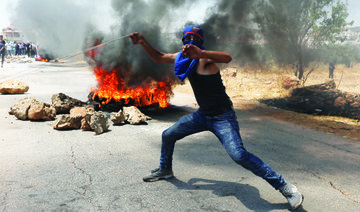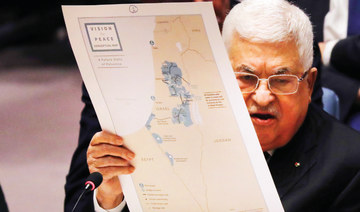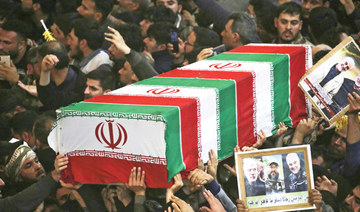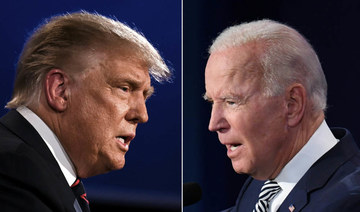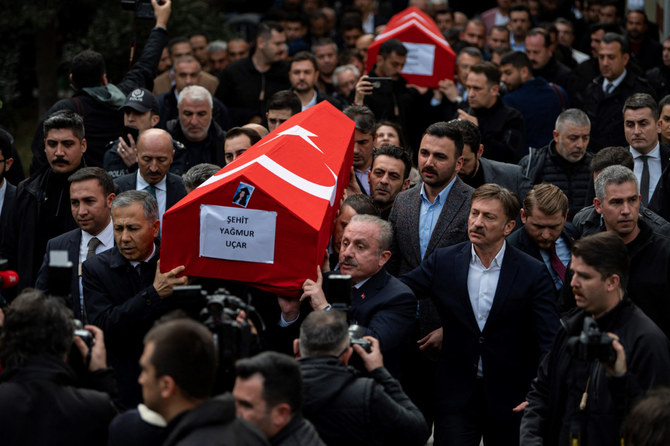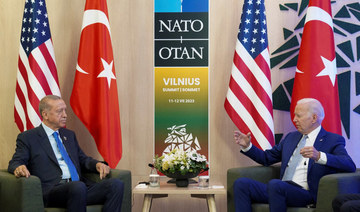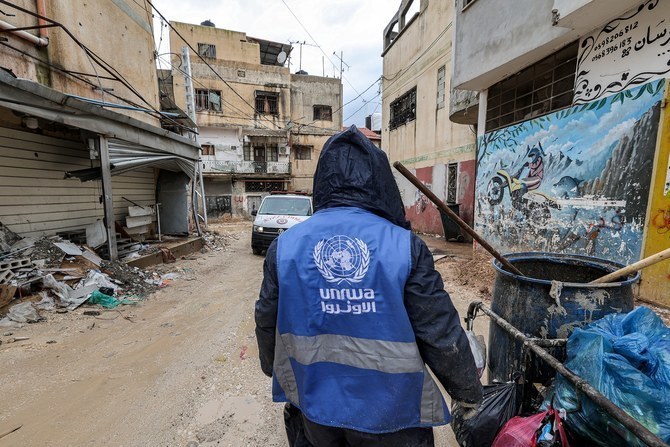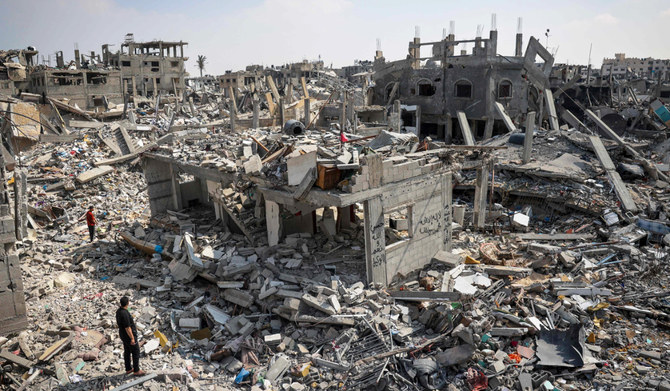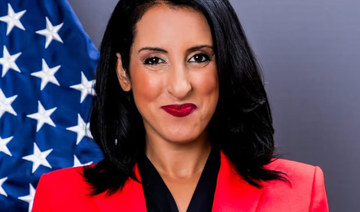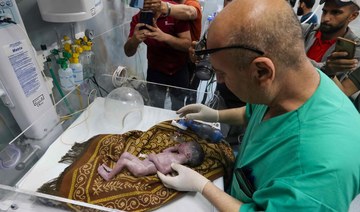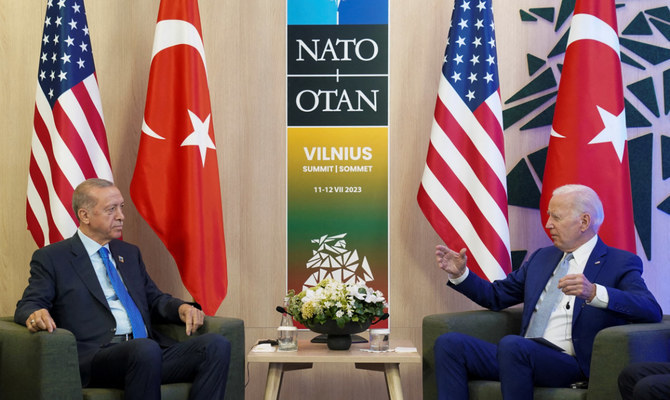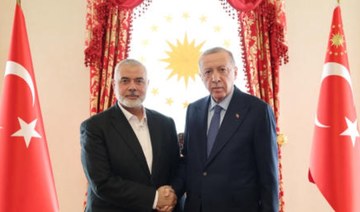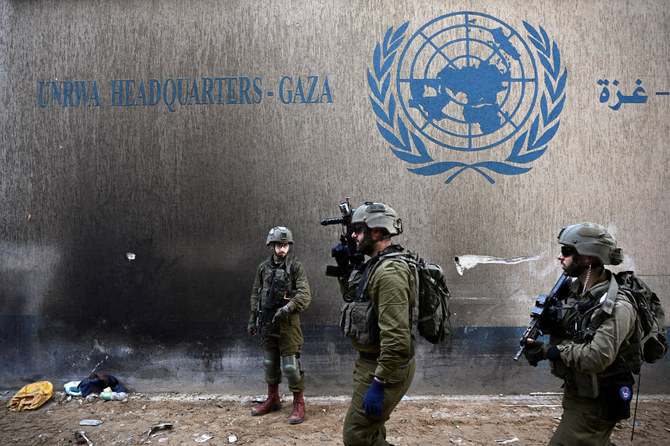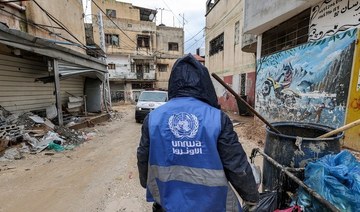DUBAI, ERBIL: For a country that advertises itself as a close ally of the US, hosting America’s biggest military contingent in the Middle East at Al-Udeid air base near Doha and spending billions of dollars on US military hardware, public attitudes in Qatar are conspicuously out of sync with the thinking in Washington on Middle East issues.
That is according to the findings of the Arab News/YouGov pan-Arab survey. From the killing on Jan. 3 of Iranian General Qassem Soleimani to US President Donald Trump’s role in the fight against extremism in the Middle East, respondents in Qatar belonged to that segment of Arab opinion most critical of Washington’s recent actions.
The question — to what extent has Trump has helped or hindered the fight against extremism — was put to 1,960 people in 18 Arab countries. Overall, 56 percent of the respondents felt he had hindered the fight. Among respondents from Qatar, this view soared to 79 percent.
Respondents in Qatar also disapproved of Trump’s May 2018 withdrawal from the Joint Comprehensive Plan of Action (JCPOA) — better known as the Iran nuclear deal.
“Despite the official relationship between Qatar and the US, every single Qatari media outlet, especially Al Jazeera, is bombarding Qatari public opinion and the Arab world with anti-Trump talk,” said Dr. Abdulkhaleq Abdulla, former chairman of the Arab Council for Social Sciences.
“They are the ones that shape public opinion and it seems that this is fine with the Qatari government, despite the fact that they have a vast relationship with the Trump administration. So, this shows a kind of contradiction at the official level with public opinion.”
READ: The methodology behind the Arab News/YouGov Pan-Arab Survey
Since the Arab boycott of Qatar began on June 5, 2017, the gas-rich Gulf state has taken a number of steps to strengthen its relations with the US in order to assuage the effects of diplomatic isolation. But it has also continued its manifold engagement with a country viewed by many in the US foreign-policy establishment as a “malign actor,” Iran. The two countries happen to share the world’s biggest natural-gas field, South Pars.
The upshot is that public opinion in Qatar is somewhat softer on Iran than elsewhere in the Arab region, if the Arab News/YouGov survey findings are any guide. The killing of Soleimani was viewed as “negative for the region” by 52 percent of respondents overall, but feelings were especially strong in Qatar, where 62 percent saw it that way.
By contrast, the strike was viewed as “positive for the region” in Saudi Arabia, Yemen and Iraq respectively by 68 percent, 71 percent and 57 percent of respondents. Soleimani, who headed the Islamic Revolutionary Guard Corps’ Al-Quds Force from 1998 until his death, was killed in a US drone strike near Baghdad Airport alongside the commander of Iran’s paramilitary proxies in Iraq, Abu Mahdi Al-Muhandis.
The disparity was also apparent when people in Qatar were asked what the next US president should do about relations with Iran. A substantial (55 percent) number called for the nuclear deal to be revived, while a smaller amount (16 percent) favored the continuation of sanctions and for Washington to maintain a war posture.

Again, by comparison, of 1,949 respondents in the wider MENA region, just 34 percent said they want to see the JCPOA revived and 33 percent said they want to see the sanctions continued and the US to maintain a war posture.
Given the apparent opposition in Qatar to the Trump agenda on Iran — and the expectation that his Democratic rival Joe Biden may revive the nuclear deal he helped draft in 2015 — it is perhaps unsurprising that just 6 percent of the respondents in Qatar said they would vote for Trump if given the opportunity, while 57 percent said they would vote for Biden.
Granted the wider region also appears to favor Biden over Trump — with 12 percent saying they would vote for the Republican incumbent and 40 percent signaling they would back the Democratic challenger — but the antipathy in Qatar seems particularly stark.
For Varsha Koduvayur, senior research analyst at the Foundation for Defense of Democracies, the results of the new Arab News/YouGov survey reflect public awareness of the sharp geopolitical tensions in the region since Soleimani’s death.
“This tit for tat we saw between Washington and Tehran was certainly a factor in how respondents viewed this question,” Koduvayur told Arab News.
She said Doha’s relationship with Tehran was one of the “straws that broke the camel’s back” when the GCC countries chose to impose their embargo. “Qatar has always been this outlier, not always in a positive sense, in the GCC,” she said.
The Arab News/YouGov survey results seem to confirm this difference of opinion. “This response underscores that notion to me,” Koduvayur told Arab News. “Qatar has its own independent policies at times but this doesn’t always gel well with what the rest of the GCC is thinking, nor is it always comfortable with what the US is thinking or with US interests in the region.”
Finally, for a country accused by three fellow GCC members and Egypt of supporting extremism through its backing of the Muslim Brotherhood, the Qatar data offered few surprises. “Containing Iran and Hezbollah,” “Weakening Islamist parties” and “Quashing radical Islamic terrorism” received respectively 17 percent, 6 percent and 6 percent support from respondents in Qatar to the question “What would you want the next US president to focus on in the coming years?”
Presumably for the same reasons, the perception of “radical Islamic terrorism,” “Iran” and “Islamist parties” as the “three biggest threats facing the Arab world” garnered respectively 22 percent, 11 percent and 7 percent from respondents in Qatar, in contrast with the relatively higher regionwide figures — 33 percent, 20 percent and 16 percent.
Twitter: @CalineMalek




